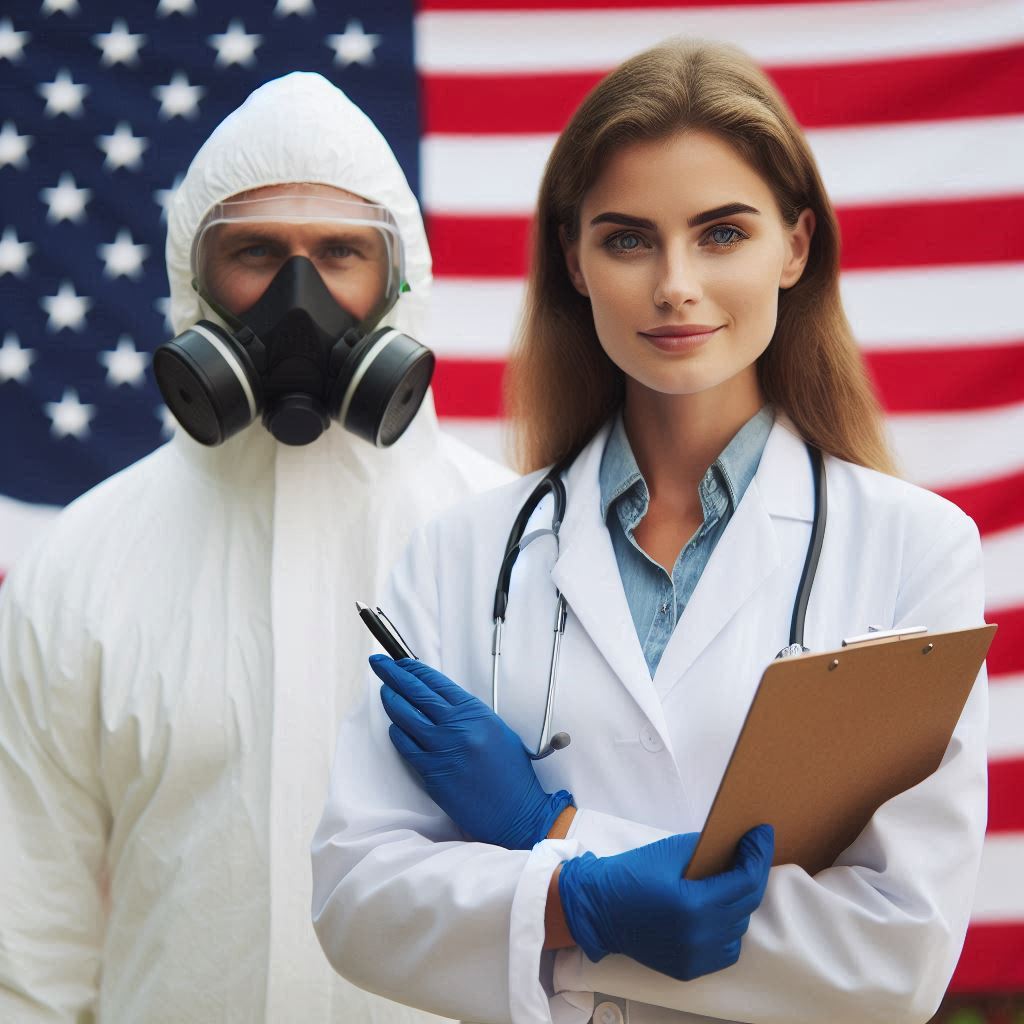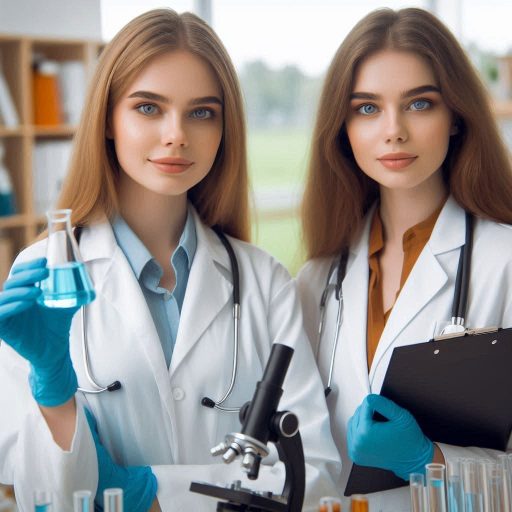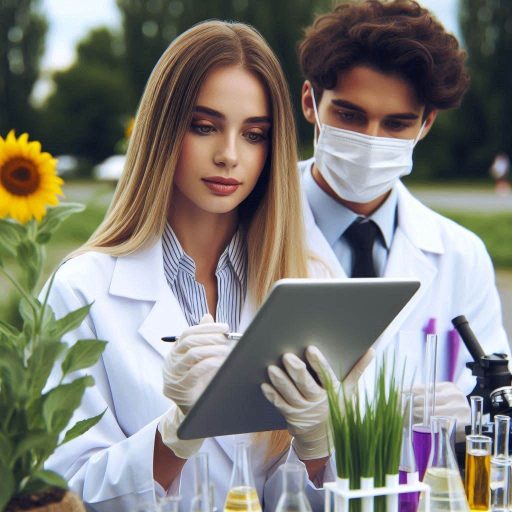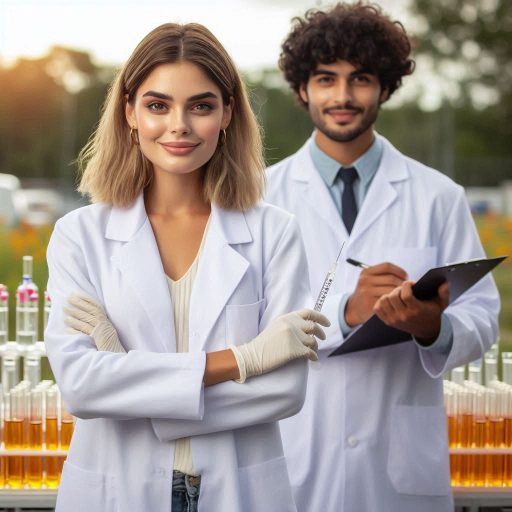Introduction
Toxicology conferences play a vital role in advancing knowledge and collaboration in the field.
These events bring together professionals, researchers, and students to share insights and discuss emerging trends.
Attendees have the opportunity to network, attend workshops, and listen to expert presentations.
Conferences foster a sense of community and encourage collaboration among toxicologists.
The growing interest in toxicology reflects increased awareness of chemical safety and environmental health.
As new substances and technologies emerge, professionals must stay informed about the latest research and regulatory changes.
Conferences provide a platform for experts to present their findings and discuss innovative solutions to contemporary challenges.
With rapid advancements in scientific methods and technology, toxicologists need continuous education to remain competitive.
Attending conferences enables professionals to learn about cutting-edge research, methodologies, and industry best practices.
This knowledge helps toxicologists adapt to evolving industry demands and regulatory requirements.
Moreover, conferences often feature poster sessions and panel discussions that highlight recent studies and breakthroughs.
These interactions allow attendees to engage with thought leaders and gain valuable insights.
Participating in toxicology conferences is essential for professionals to stay updated, enhance their skills, and contribute to the field‘s growth and development.
Importance of attending toxicology conferences
Networking Opportunities with Industry Professionals, Researchers, and Academics
Attending toxicology conferences offers excellent networking opportunities.
Participants can connect with industry professionals, researchers, and academics.
Building a network can lead to collaborations and career advancements.
Conferences often include formal and informal networking sessions.
These settings encourage open discussions and relationship-building.
Many conferences host panel discussions and workshops.
These sessions allow attendees to engage directly with experts.
Participants can ask questions and share insights on various topics.
This interaction helps forge connections that may benefit future projects.
Moreover, networking at conferences helps attendees stay updated on industry trends.
Engaging with professionals from diverse backgrounds provides new perspectives.
These interactions can inspire fresh ideas and innovative approaches in toxicology.
Building a strong network can open doors to job opportunities and collaborations in the future.
Opportunity to Present Research Findings and Gain Feedback from Peers
Presenting research at toxicology conferences is a valuable experience.
Many conferences feature poster sessions and oral presentations for attendees.
Presenting your work helps you gain visibility in the field.
It allows you to showcase your research to a knowledgeable audience.
Receiving feedback from peers is one of the most beneficial aspects of presenting.
Colleagues can provide constructive criticism and suggestions for improvement.
This feedback can refine your research and enhance its quality.
Engaging in discussions about your work can spark new ideas and collaborations.
Presenting research also builds confidence in public speaking.
These opportunities help develop effective communication skills.
Communicating complex ideas clearly is crucial in toxicology.
Learning to present your findings can benefit your career in the long run.
Conferences often publish proceedings that include research presentations.
Having your work published can increase your visibility and credibility.
It serves as a testament to your contributions to the field of toxicology.
Access to Cutting-Edge Research and Developments in the Field
Toxicology conferences provide access to cutting-edge research and developments.
Attendees can learn about the latest studies and advancements in the field.
Keynote speakers often present groundbreaking research and innovative methodologies.
This exposure helps attendees stay informed about trends and challenges.
Many conferences also host workshops and symposia on specialized topics.
These sessions allow for deeper exploration of specific areas within toxicology.
Participants can engage with experts who share their knowledge and experiences.
This hands-on learning can significantly enhance attendees‘ understanding of complex topics.
Moreover, conferences often feature exhibitors showcasing the latest tools and technologies.
Attendees can explore products that enhance research and analysis in toxicology.
Interacting with vendors can provide insights into the resources available for professionals in the field.
Staying updated on current research is vital for career growth.
Attending conferences fosters a culture of continuous learning.
Participants can take back valuable knowledge to their institutions and organizations.
This practice ultimately contributes to advancements in toxicology and public health.
Attending toxicology conferences offers numerous benefits.
The networking opportunities, presentation experiences, and access to cutting-edge research are invaluable.
Engaging with industry professionals and peers can enhance your career and knowledge in toxicology.
Embrace these opportunities to grow and excel in this vital field.
Read: Botany Career Fairs and Networking Events
Top toxicology conferences to attend
Society of Toxicology (SOT) Annual Meeting
The Society of Toxicology (SOT) Annual Meeting is one of the premier events for toxicologists.
This event typically occurs in March and attracts thousands of professionals from around the world.
Attendees include researchers, industry experts, and regulatory professionals.
The SOT Annual Meeting features a wide range of sessions and workshops.
These sessions cover various topics, such as risk assessment, environmental toxicology, and drug safety.
Attendees can choose from platform sessions, poster presentations, and symposiums.
This variety ensures that there is something for everyone, regardless of their specialization.
Networking opportunities abound at the SOT Annual Meeting.
Attendees can connect with leading experts in toxicology.
These connections can lead to collaborations, mentorship, and job opportunities.
The meeting also hosts an exhibit hall showcasing the latest tools and technologies in the field.
Participants can earn continuing education credits by attending specific sessions.
This aspect makes the SOT meeting valuable for professional development.
Engaging with the latest research and advancements helps attendees stay informed and competitive in their careers.
In summary, the SOT Annual Meeting provides a comprehensive experience for toxicologists.
It combines education, networking, and exposure to cutting-edge research, making it a must-attend event.
International Congress of Toxicology (ICT)
The International Congress of Toxicology (ICT) is another significant event for toxicology professionals.
This congress occurs every four years, providing a global platform for discussion and collaboration.
The ICT brings together toxicologists from various countries and disciplines.
The event features keynote speakers who are leaders in toxicology research.
These speakers present the latest findings and insights in the field.
In addition to plenary sessions, the ICT includes workshops and breakout sessions.
Participants can delve deeper into specific topics and engage in meaningful discussions.
Networking opportunities at the ICT are invaluable.
Attendees can connect with peers from around the globe, fostering international collaborations.
This interaction encourages the sharing of ideas and best practices among toxicologists.
The congress often includes social events, making networking more enjoyable and informal.
The ICT also focuses on education and training.
Workshops provide hands-on experience with emerging technologies and methodologies.
Participants can learn from experts and apply this knowledge in their work.
The event promotes the exchange of information, helping to advance the field of toxicology.
In essence, the ICT serves as a vital forum for toxicologists worldwide.
It encourages collaboration, education, and networking, making it a key event to attend.
American College of Toxicology (ACT) Annual Meeting
The American College of Toxicology (ACT) Annual Meeting is an important event for toxicology professionals.
This meeting typically takes place in the fall and draws experts from academia, industry, and government.
The ACT provides a platform for discussing the latest developments in toxicology.
The ACT Annual Meeting features various educational sessions.
Attendees can participate in workshops, scientific presentations, and panel discussions.
These sessions cover topics such as clinical toxicology, regulatory science, and safety assessments.
Participants gain valuable insights into current challenges and innovations in the field.
Networking at the ACT meeting is essential for career development.
Attendees can meet with leaders and peers, facilitating professional connections.
The meeting also includes a poster session where researchers present their work.
This format encourages discussions and feedback on ongoing projects.
The ACT emphasizes the importance of mentorship.
The meeting often features sessions aimed at early-career professionals.
These sessions provide guidance on navigating the toxicology field and advancing one‘s career.
The ACT Annual Meeting is a valuable experience for toxicologists.
It combines education, networking, and mentorship, making it an excellent choice for professionals seeking to grow their expertise.
Attending these top toxicology conferences and events can significantly enhance your knowledge and network.
Whether you choose the SOT, ICT, or ACT, each event offers unique opportunities for professional growth and collaboration in the field of toxicology.
Read: Preparing for a Botany PhD: Tips and Advice
Key benefits of attending SOT Annual Meeting
Largest Toxicology Conference in the World
The largest toxicology conference in the world is the Society of Toxicology (SOT) Annual Meeting.
This prestigious event attracts thousands of professionals from various sectors.
It features a diverse group of participants, including researchers, educators, and regulatory professionals.
The SOT Annual Meeting showcases the latest advancements in toxicology research and practice.
Attendees have the chance to learn from experts and engage with cutting-edge studies.
The conference typically takes place in the United States, rotating locations each year.
Each event hosts numerous presentations, poster sessions, and keynote speeches.
Participants gain insights into new research findings and methodologies.
The scale of the conference fosters an inclusive atmosphere for sharing knowledge.
In addition to learning opportunities, the SOT Annual Meeting offers valuable resources.
Attendees can explore vendor exhibits featuring the latest technologies and products.
These exhibits allow professionals to discover innovative tools and services in the toxicology field.
Variety of Sessions, Workshops, and Symposia Covering All Aspects of Toxicology
The SOT Annual Meeting includes a wide variety of sessions tailored to diverse interests.
Attendees can choose from scientific presentations, workshops, and symposia.
This diversity ensures that there is something for everyone, regardless of their expertise level.
Workshops often provide hands-on experiences, enhancing practical skills.
Participants can engage in interactive learning environments that promote deeper understanding.
Scientific sessions cover the latest research findings in various areas of toxicology.
Topics may range from molecular toxicology to environmental risk assessment.
Symposia feature panels of experts discussing emerging trends and challenges in the field.
These sessions encourage dialogue among participants and experts, fostering collaborative learning.
The variety of sessions ensures that attendees stay informed about the latest developments in toxicology.
Moreover, the SOT Annual Meeting emphasizes interdisciplinary approaches.
Participants learn how toxicology intersects with fields like pharmacology, environmental science, and public health.
This holistic view enhances understanding and encourages collaboration among professionals.
Opportunity to Meet Experts in the Field and Expand Professional Network
The SOT Annual Meeting offers an excellent opportunity to meet leading experts in toxicology.
Attendees can engage in discussions with renowned researchers and industry leaders.
Building relationships with these professionals can lead to valuable mentorship and collaboration opportunities.
Networking events, such as receptions and luncheons, facilitate informal interactions.
These gatherings allow participants to connect with peers and establish professional relationships.
Engaging in conversations can lead to potential job opportunities or research partnerships.
Participants should also consider joining interest groups within the SOT.
These groups provide a platform for networking with others who share similar interests.
They often organize meetings and activities during the conference.
Utilizing social media platforms is another way to connect with attendees.
Following the SOT Annual Meeting‘s official social media channels can help individuals stay updated on events and highlights.
Engaging in discussions online can further enhance networking opportunities.
Attending the SOT Annual Meeting is essential for toxicology professionals.
It provides unparalleled learning opportunities and access to experts.
By participating in this large conference, attendees can significantly expand their professional networks and enhance their careers.
Read: Interdisciplinary Research: Botany and Other Sciences

The International Congress of Toxicology (ICT)
Global Platform for Toxicologists to Share Research and Collaborate
Attending toxicology conferences provides a vital platform for toxicologists worldwide.
These events facilitate the exchange of innovative ideas and research findings.
Toxicologists from various backgrounds gather to share their work and insights.
This collaboration fosters partnerships that can lead to groundbreaking research.
Conferences often feature keynote speakers who are leaders in the field.
These presentations inspire attendees and offer new perspectives on current challenges.
Networking opportunities abound during these events, allowing professionals to connect and establish relationships.
Engaging with peers can lead to collaborations that enhance research efforts and career development.
Participants also have the chance to present their own research.
Sharing findings with a global audience builds visibility and credibility.
This exposure can attract interest from potential collaborators and employers.
Overall, these conferences serve as a dynamic hub for knowledge sharing and professional growth.
Diverse Range of Topics Covered
Top toxicology conferences cover a wide array of topics relevant to the field.
Participants can explore areas such as regulatory toxicology, environmental toxicology, and clinical toxicology.
Each topic addresses critical issues and developments in toxicology research.
Regulatory toxicology sessions focus on laws, guidelines, and safety assessments.
Understanding these regulations is vital for toxicologists working in industry and government.
Environmental toxicology discussions examine the impact of chemicals on ecosystems and human health.
Addressing these concerns is crucial in today’s rapidly changing world.
Clinical toxicology topics often center around patient safety and poison control.
These sessions equip toxicologists with knowledge about current practices and emerging challenges.
Attending talks on diverse subjects broadens attendees’ understanding and expertise.
Participants gain insights that can directly inform their work and research.
Opportunity to Explore International Perspectives
International toxicology conferences offer unique opportunities to explore global perspectives.
Attendees can learn about toxicological issues faced in different regions.
Understanding these challenges enhances the effectiveness of toxicologists working worldwide.
Networking with international experts provides insight into varying research methodologies.
Toxicologists can exchange ideas and approaches that differ from their own.
This exposure encourages innovation and adaptability in their work.
Moreover, international conferences often highlight cross-cultural collaborations.
These partnerships lead to shared research projects and findings.
Exploring different perspectives enriches the field and promotes a more comprehensive understanding of toxicology.
In addition, attendees can learn about global regulations and standards.
Understanding international policies helps toxicologists navigate the complexities of their work.
This knowledge is essential for those aiming to make a global impact.
In closing, attending top toxicology conferences is crucial for professionals in the field.
These events provide a global platform for sharing research and collaborating.
They cover a diverse range of topics, ensuring relevance for all attendees.
Exploring international perspectives enhances understanding and fosters innovation.
Aspiring and established toxicologists alike should prioritize participation in these conferences.
Engaging in this dynamic environment promotes professional growth and advancement in toxicology research.
Read: Women in Botany: Celebrating Pioneers and Leaders
Advantages of attending the American College of Toxicology (ACT) Annual Meeting
Focus on Preclinical and Translational Toxicology Research
Toxicology conferences provide invaluable opportunities to explore preclinical and translational research.
These events showcase the latest advancements in drug safety assessment and environmental health.
Attending these conferences allows professionals to learn about innovative methodologies in toxicology.
Researchers present their findings, highlighting significant breakthroughs and challenges in the field.
Many conferences focus on translating laboratory findings into clinical applications.
This emphasis is crucial for toxicologists aiming to impact drug development.
Networking with experts in preclinical and translational toxicology can inspire new ideas and collaborations.
Participants can share insights and best practices, enhancing their understanding of this rapidly evolving field.
Additionally, these conferences often feature workshops and sessions led by industry leaders.
These interactive formats allow attendees to engage in discussions and ask questions.
Staying updated on regulatory changes and emerging trends is essential for toxicologists.
Events centered on preclinical and translational toxicology provide the perfect platform for this exchange of knowledge.
Small, Intimate Setting Conducive to Networking and Collaboration
Many top toxicology conferences prioritize small, intimate settings.
These environments foster meaningful networking opportunities and collaboration among attendees.
Smaller gatherings encourage participants to engage more deeply with each other.
This setting allows for personal connections that larger conferences often miss.
Participants can share experiences, challenges, and solutions in a more relaxed atmosphere.
Attendees can discuss their research and seek feedback from peers.
The close-knit environment promotes teamwork and idea-sharing among toxicology professionals.
It also encourages mentorship opportunities, allowing newcomers to gain insights from seasoned experts.
In these intimate settings, attendees can engage in roundtable discussions.
These discussions facilitate open dialogue about pressing topics in toxicology.
Participants can brainstorm solutions to common challenges and explore potential collaborations.
The networking potential at smaller conferences often leads to lasting professional relationships and partnerships.
Emphasis on Fostering Leadership and Professional Development in Toxicology
Many toxicology conferences emphasize leadership and professional development.
These events often feature workshops designed to enhance essential skills.
Participants can develop their abilities in areas such as communication, project management, and regulatory affairs.
Leadership sessions often include discussions on emerging trends and challenges in the toxicology field.
These insights prepare professionals for future roles in their organizations.
Attendees can learn from successful leaders who share their experiences and strategies.
Mentorship programs are also common at these conferences.
They connect early-career toxicologists with established professionals.
This guidance helps newcomers navigate their careers and make informed decisions.
Such initiatives foster a supportive community dedicated to the growth of toxicology as a discipline.
Moreover, many conferences provide resources for continuing education.
These resources ensure that toxicologists remain current in their knowledge and skills.
By focusing on leadership and professional development, conferences empower attendees to excel in their careers.
Generally, attending top toxicology conferences is essential for professional growth.
Focusing on preclinical and translational research, smaller networking environments, and leadership development opportunities creates a rich experience.
These events provide the tools necessary for toxicologists to thrive in their careers and contribute meaningfully to the field.
Transform Your Career Today
Unlock a personalized career strategy that drives real results. Get tailored advice and a roadmap designed just for you.
Start NowTips for making the most of attending toxicology conferences
Plan Your Schedule in Advance and Prioritize Sessions of Interest
Attending toxicology conferences can greatly enhance your knowledge and network.
Start by reviewing the conference agenda as soon as it‘s available.
Identify sessions that align with your research interests and career goals.
Prioritize these sessions to make the most of your time.
Create a schedule that includes key presentations, workshops, and panel discussions.
Consider using scheduling tools or apps to organize your plan efficiently.
This helps you keep track of your selected sessions and locations.
Be flexible, as last-minute changes may occur in the schedule.
Make note of the speakers you want to meet, and plan accordingly.
If possible, attend pre-conference workshops for deeper learning experiences.
These workshops often provide valuable skills and knowledge directly related to your field.
Engaging in these sessions can set a strong foundation for your conference experience.
Also, consider the time needed for breaks and meals.
Networking happens during informal moments, so leave room for spontaneous interactions.
A well-planned schedule enhances your overall conference experience and maximizes learning opportunities.
Take Advantage of Networking Opportunities and Connect with Industry Leaders
Networking is a critical aspect of attending toxicology conferences.
Engage actively with other attendees to expand your professional connections.
Arrive early to sessions and participate in discussions with fellow participants.
Introduce yourself and express your interests and goals.
Seek out industry leaders who present at the conference.
Approach them after their sessions to ask questions or discuss their research.
Most professionals appreciate enthusiasm and will be willing to share insights.
Don‘t forget to bring business cards for easy sharing of contact information.
Utilize networking events organized by the conference, such as mixers or luncheons.
These events provide a relaxed environment to meet professionals in your field.
Participate in group discussions to showcase your knowledge and learn from others.
Make use of social media platforms to connect with attendees before and during the conference.
Use hashtags related to the event to find and engage with other participants.
Building these relationships can lead to future collaborations and opportunities in your career.
Participate in Poster Sessions and Present Your Research
Poster sessions offer a fantastic opportunity for participants to showcase their research.
If you have conducted research, consider submitting a poster for presentation.
This allows you to share your findings with a broader audience.
Preparing a clear and visually appealing poster is essential.
Make sure to include key data and concise explanations.
Practice your presentation skills, as you may have to explain your research to attendees.
Be open to questions and feedback during the session.
Engaging with other researchers during poster sessions can provide valuable insights.
They may offer suggestions for improving your research or highlight potential collaborations.
This interaction can enhance your understanding of the topic and expand your network.
Attending others’ poster presentations can also be beneficial.
It allows you to learn about cutting-edge research and new methodologies.
This exposure can inspire your future projects and expand your knowledge base.
Participating in conferences through poster sessions is rewarding.
It not only showcases your work but also helps you grow as a researcher.
Embrace these opportunities to engage with the toxicology community and gain valuable feedback.
Find Out More: Bioinformatics: Key Challenges and Future Trends
Conclusion
Attending toxicology conferences is essential for professional development and staying current in the field.
These events provide opportunities to learn about the latest research, technologies, and regulatory changes.
Networking with peers and industry leaders helps build valuable connections that can enhance your career.
Conferences also allow professionals to share their own research and gain feedback from experts.
For toxicology professionals, exploring top conferences offers numerous opportunities for growth.
The Society of Toxicology Annual Meeting is one of the largest events, showcasing cutting-edge research and innovative practices.
Attending this conference can expand your knowledge and provide insights into emerging trends.
Another important event is the European Society of Toxicology meeting, which emphasizes global perspectives on toxicological issues.
This conference offers a chance to engage with international experts and collaborate on solutions.
The American College of Toxicology Annual Meeting focuses on practical applications and regulatory challenges in the field.
It provides attendees with useful information that can be applied to their daily work.
Participating in toxicology conferences is crucial for professionals seeking to advance their careers.
Take advantage of these opportunities to learn, network, and grow within the toxicology community.




